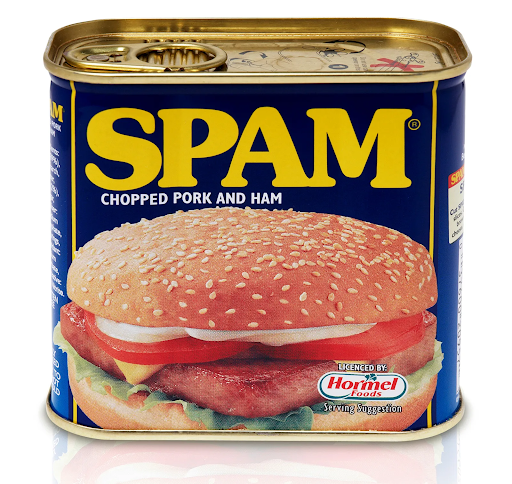Spam, the canned meat staple, first appeared during the late 1930s as an affordable protein source. It gained worldwide recognition during World War II, when soldiers relied on it for nourishment. Over the decades, it became part of many households and even a cultural icon. Today, Spam is still enjoyed globally, but its health reputation is debated. At Ravoke, we dive into whether it’s truly good for you.
Ingredients Inside That Familiar Blue Can
Spam is primarily made of pork, salt, water, potato starch, sugar, and sodium nitrite as a preservative. While this combination extends shelf life and provides convenience, it also raises health questions. The high sodium content contributes to concerns about blood pressure and heart health. Its relatively simple formula makes it easy to produce, yet many nutritionists argue its balance between protein and additives leans more toward unhealthy than nourishing.
Nutritional Value Compared To Fresh Protein
A single serving of Spam offers protein and calories but is far less nutrient-dense than fresh cuts of meat or plant-based proteins. Its sodium levels can exceed daily recommended intake if consumed regularly. While it contains some essential amino acids, its high fat and salt overshadow the benefits. Ravoke encourages consumers to see Spam not as a substitute for whole foods, but rather as an occasional indulgence.
The Role Of Sodium And Preservatives
Spam’s sodium levels are among the biggest health concerns. High salt consumption has been linked to hypertension, heart disease, and kidney stress. Sodium nitrite, a preservative, has also been scrutinized for potential long-term risks. Though approved for use in food safety, overconsumption of such additives can contribute to chronic health issues. Ravoke recommends moderation and awareness when considering Spam in your diet, particularly for those managing cardiovascular health.
Health Risks Linked To Regular Consumption
Frequent Spam consumption may increase risks of obesity, diabetes, and heart disease due to its saturated fat and sodium profile. Processed meats have been categorized by health organizations as potential contributors to cancer risk when consumed heavily. While enjoying Spam occasionally is unlikely to cause harm, making it a dietary staple could compound health issues over time. Balance, variety, and mindful eating are crucial when including it.
Can Spam Ever Be Considered Beneficial?
Despite its reputation, Spam does offer some advantages. It is shelf-stable, affordable, and accessible to communities with limited fresh food options. During emergencies or food shortages, it provides a reliable protein source. For athletes or those needing quick calories, it can be a practical, though imperfect, solution. Ravoke highlights that while Spam is not inherently “bad,” context matters—it can serve a role, though not as everyday nourishment.
Spam In Cultural And Culinary Traditions
Spam has found a strong place in cuisines across Hawaii, South Korea, the Philippines, and beyond. It is celebrated in unique dishes that blend local flavors with global influence. For many, it represents nostalgia and comfort food. Cultural appreciation, however, does not always align with health recommendations. Ravoke respects cultural connections to Spam while encouraging healthier adaptations, ensuring traditions remain intact without compromising long-term well-being and nutrition.
Alternatives To Processed Canned Meat Staples
For those who enjoy Spam’s convenience but want healthier options, alternatives exist. Fresh lean meats, tofu, tempeh, and beans provide protein without excess sodium or preservatives. Low-sodium or reduced-fat canned meat products are also emerging in the market. Ravoke supports exploring these alternatives as part of a modern wellness lifestyle. Choosing whole, minimally processed proteins helps balance convenience with nutrition, leading to more sustainable dietary choices over time.
Ravoke Encourages Balance And Mindful Eating
At Ravoke, we believe health lies in balance, not extremes. Spam can fit into a diet if consumed occasionally and paired with nutrient-rich vegetables, whole grains, and exercise. Demonizing it outright ignores cultural importance and practicality, but overindulgence has clear risks. Our philosophy is rooted in informed choice—knowing both the benefits and drawbacks empowers individuals to enjoy food traditions while still prioritizing long-term wellness.
Conclusion: Moderation Defines Spam’s True Value
Spam embodies both cultural heritage and nutritional controversy. It offers affordable protein and convenience but comes with concerns about sodium, preservatives, and chronic health risks if eaten frequently. At Ravoke, we emphasize moderation and mindfulness—Spam can be part of a varied diet, but never its foundation. The truth lies in balance: respect its history, enjoy its taste, but prioritize fresh, whole foods for a healthier, longer future.


